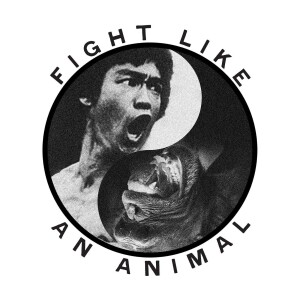
Sub-Self, Meet Meta-Self: Notes on The Emerging World Mind
 2024-03-21
2024-03-21
You've heard a million times that the history of life on earth is one of systems tending toward ever-increasing complexity, but in this episode, we argue evolutionary history is best conceptualized as one of ever-expanding boundaries of selfhood. In so doing, we apply a unique lens to questions with concrete strategic implications which have vexed environmental politics for generations: is the trend toward increasing scale and complexity in human societies intrinsically bad? Is nature whatever humans aren't doing? Can we exert conscious influence on ecosystems and revere them at the same time? We make a case for a politics in alliance with the broad tendency of life on earth to increase the scale of the “self,” arguing that while people have clearly lost hope in the revolutionary mythologies they invented out of psychological need, this particular mythology of expanding selfhood is real, and therefore durable.
Somewhere along the way, we note how the power exercised in extractive hierarchical societies precisely recapitulates the logic of cancer: when the perceived boundaries of the “self” shrinks, cells (or people) begin treating the systems of which they are a part as “other.” We also see how central nervous systems evolved repeatedly in different animal lineages, complex cell anatomy resulted from organisms failing to digest what they had eaten, octopus arms might be independently conscious, and domestication can be broken down into sub-components by relevant brain system. To top it all off, Arnold cries just a little at the very end. What more could you possible ask for? If your answer is “a video where a bunch of very interesting people who met through Fight Like An Animal talk about some of these same themes,” here's a link to a video called Scientific Animism: The Computational Boundaries of an Octopus.
More Episodes
 2024-09-18
2024-09-18
 2024-05-25
2024-05-25
 2023-12-31
2023-12-31
 2023-11-22
2023-11-22
 2023-10-03
2023-10-03
Create your
podcast in
minutes
- Full-featured podcast site
- Unlimited storage and bandwidth
- Comprehensive podcast stats
- Distribute to Apple Podcasts, Spotify, and more
- Make money with your podcast
It is Free
- Privacy Policy
- Cookie Policy
- Terms of Use
- Consent Preferences
- Copyright © 2015-2024 Podbean.com




